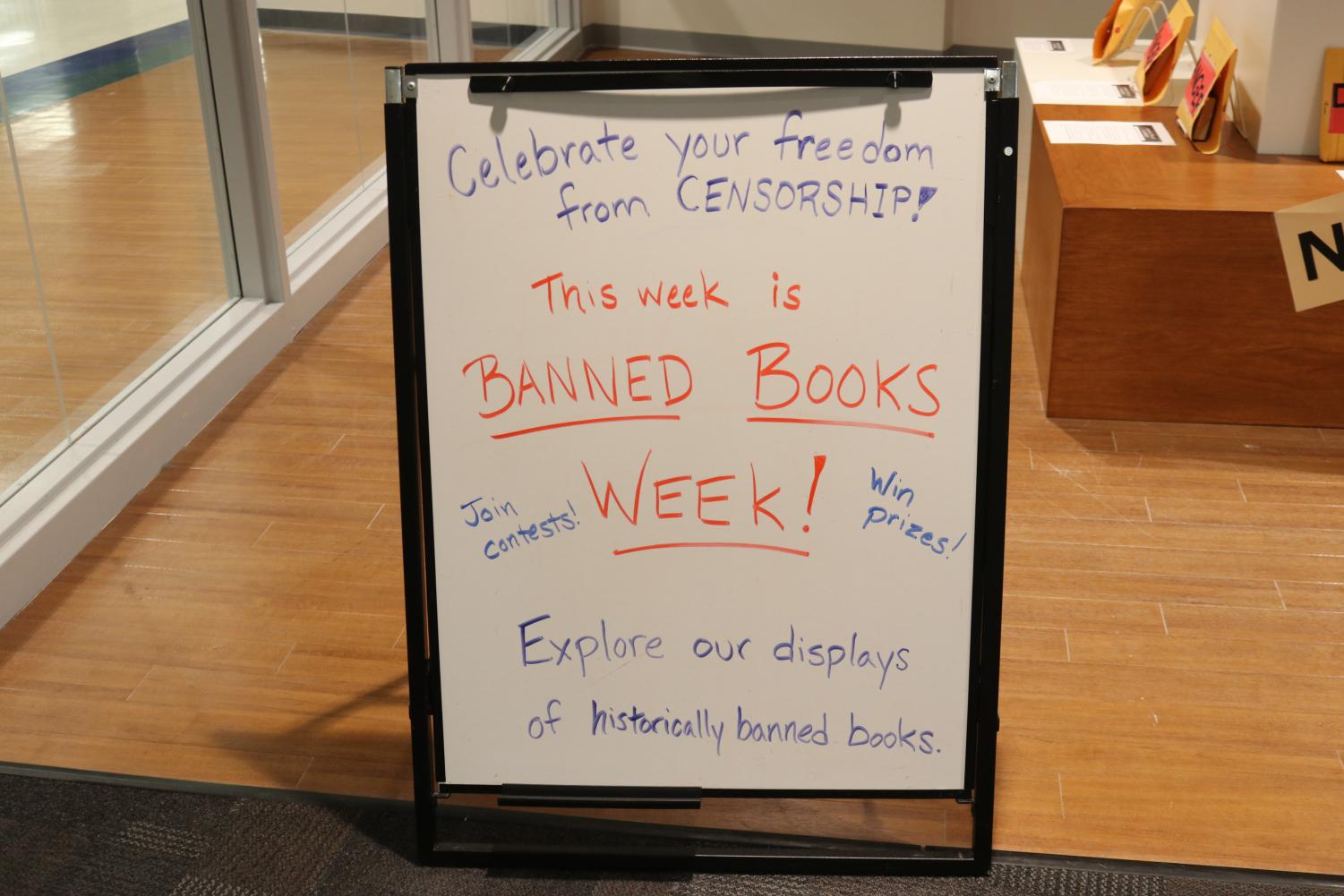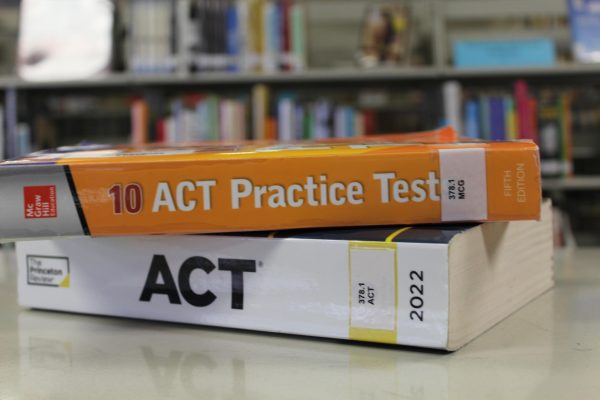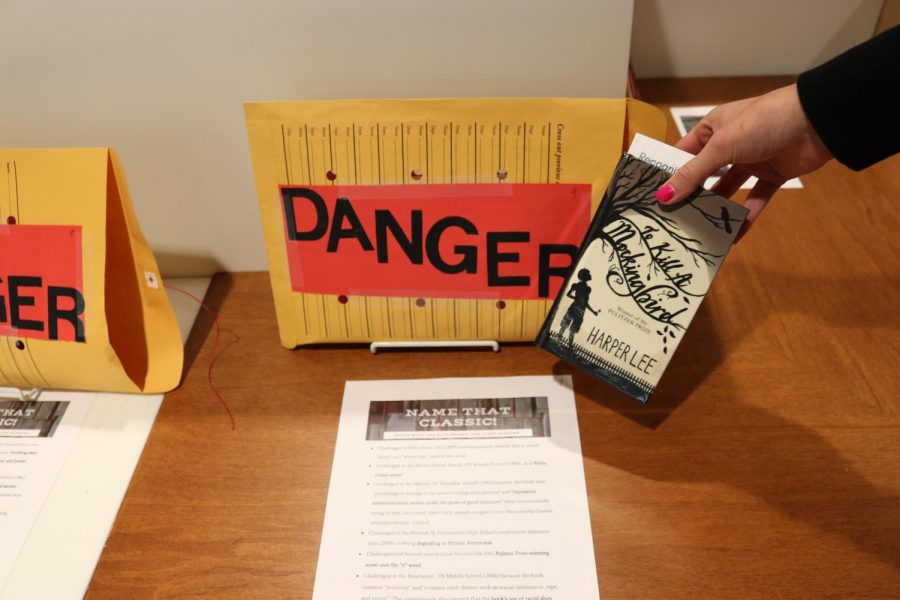Banned Books Week Highlights Students’ Freedom to Read
Media by Taryn Moore
Many Americans take their unrestricted access to literature for granted, not recognizing the power behind this freedom. The First Amendment allows US citizens to have freedom to read anything they want without censorship.
Sophia Russell, junior, reads the slip of paper in front of each file folder labeled “DANGER” from a display in the MHS library. The paper has hints about the book, such as “challenged for being a ‘filthy, trashy novel’” and “challenged for being degrading to African Americans.”
The folder contains the book To Kill a Mockingbird by Harper Lee.
Another folder contains 1984 by George Orwell. Another holds Of Mice and Men by John Steinbeck.
Although these books may seem unrelated, each has been “banned” at least once in the last 100 years.
Banned books are works of literature that organizations have deemed inappropriate because of their subject matter. A common example of attempting to ban a book is petitioning for its removal from a school curriculum or library. But due to the First Amendment, censorship is not allowed in the U.S..
To celebrate the fact that Americans are allowed to have free and unrestricted access to literature, the last week of September each year is recognized as Banned Books Week.

Russell said she enjoys the fact that the librarians are taking advantage of Banned Books Week to create interactive displays for students.
“I thought it was really cool,” Russell said. “But then there’s the thought process of why in the world are [these books] banned?”
The display is part of a movement to educate students about how essential the privilege to read actually is, said Raymond Holmes, librarian.
“I think it’s important for students and staff to consider how we can exercise our freedom to read,” Holmes said. “Reading helps us grow as people and citizens.”
According to a 2013 study by multiple doctors and researchers in California, reading does help brain development. After participants read a novel over the span of nine days, MRI scans showed that during the time spent reading and some days after, connectivity between different parts of the brain increased.
Brittany Sharitz, librarian, said high school students should have freedom in their choices to read for enjoyment.
“Once they enter the adult world, they’ll have access to anything,” she said.
Public libraries do not support the censorship of books because it is a reader’s choice to pick up a book, according to Sharitz.
“The beauty of reading is that if people are ever offended by written materials, they can just stop reading,” she said. “Video and audio content can expose people to content without their choice; however, you always have the choice to stop reading.”
Your donation will support the student journalists of Marquette High School. Your contribution will allow us to purchase equipment and cover our annual website hosting costs. You may become a PATRON by making a donation at one of these levels: White/$30, Green/$50, Blue/$100. Patron names will be published in the print newsmagazine, on the website and once per quarter on our social media accounts.

Taryn Moore (she/her), senior, is the Sports Editor of the Messenger for the 2021-2022 school year. This is her second year on staff. Taryn also plays...







